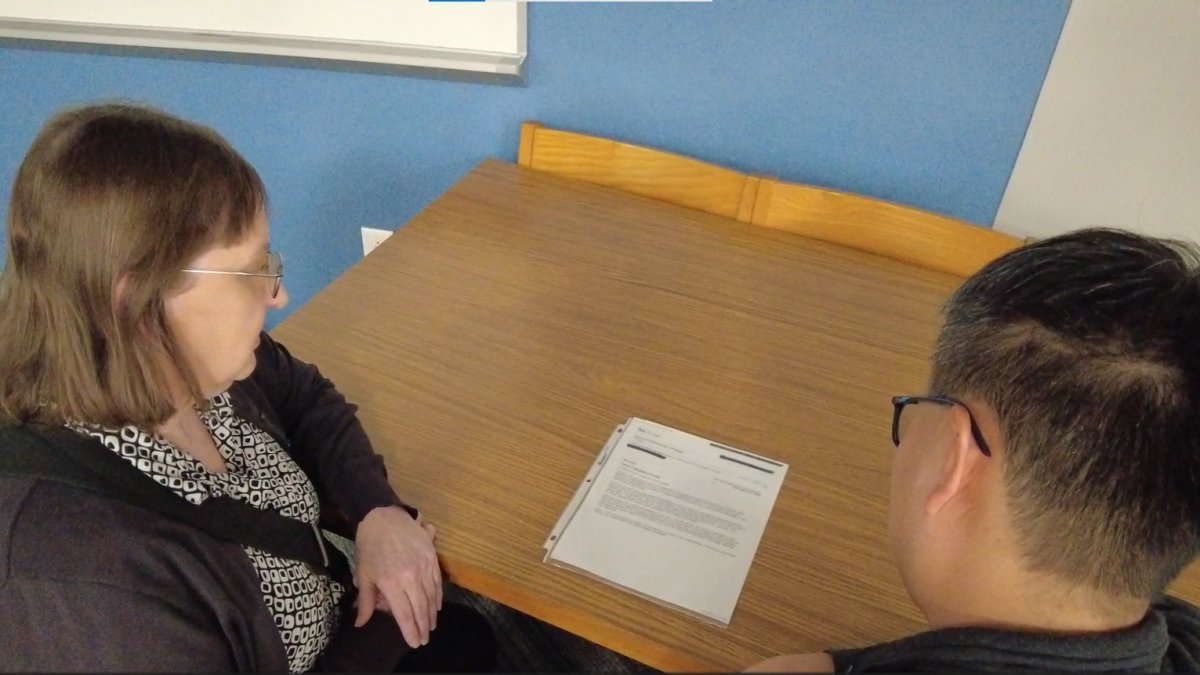CT Woman Wrongly Targeted for Deportation: A Case of Immigration System Errors
Editor’s Note: The case of a Connecticut woman wrongly targeted for deportation has been released today, highlighting critical flaws in the immigration system.
Why This Matters
The story of [Woman's Name], a Connecticut resident, wrongly targeted for deportation, underscores the urgent need for reform within the US immigration system. This case isn't an isolated incident; it reflects broader concerns about errors, bureaucratic inefficiencies, and the potential for devastating consequences for individuals caught in the system's complexities. Understanding this case helps shed light on the human cost of systemic failures and the importance of advocating for fairer, more accurate immigration processes. This article will examine the key aspects of [Woman's Name]'s case, analyze the contributing factors, and explore potential solutions to prevent similar situations. We will also examine the broader implications for immigration policy and the challenges faced by immigrants navigating the US legal system.
Key Takeaways
| Point | Description |
|---|---|
| Wrongful Targeting | [Woman's Name] was mistakenly identified for deportation due to [Reason]. |
| Systemic Errors | The case highlights flaws in data management, verification, and communication within the immigration system. |
| Human Cost | The ordeal caused significant emotional distress, financial hardship, and legal challenges for [Woman's Name]. |
| Need for Reform | The case underscores the urgency for improvements in accuracy and due process within immigration procedures. |
| Public Awareness | Raising awareness about such cases is crucial for advocating for systemic change. |
CT Woman Wrongly Targeted for Deportation
This story centers around [Woman's Name], a [Age]-year-old Connecticut resident who was unexpectedly served a deportation order. The error stemmed from [Clearly explain the source of the error, e.g., a data entry mistake, mismatched social security numbers, etc.]. This seemingly simple mistake had catastrophic implications, placing her in immediate danger of deportation and separation from her [Family/Community ties]. The relevance of this case lies in its demonstration of the potential for devastating consequences stemming from easily preventable errors within a complex system.
Key Aspects of the Case
- The Error: A detailed explanation of the specific error that led to the wrongful targeting. Include dates, relevant documents, and any supporting evidence.
- The Impact: Describe the emotional, financial, and legal consequences faced by [Woman's Name] as a result of this error. Include quotes from her or her representatives, if available.
- The Response: Outline the actions taken by [Woman's Name], her legal representatives, and potentially government agencies to rectify the situation.
Detailed Analysis
This section will provide a deeper dive into each key aspect. For example, under "The Error," you would explain the technical details of the mistake, possibly citing relevant government databases or regulations. Under "The Impact," you could include details about lost income, emotional distress, legal fees, and the strain on her relationships. Under "The Response," you could detail the legal process undertaken to correct the error, including court filings, appeals, or interventions by advocacy groups.
Interactive Elements
The Role of Data Management in Immigration Deportations
This section will explore the crucial role data management plays in the deportation process. We will analyze the risks associated with inaccurate data, the importance of data verification, and the potential consequences of system failures. Examples of similar cases or incidents involving data errors will be used to highlight the pervasiveness of the problem.
Advocacy and Legal Support for Wrongfully Targeted Immigrants
This section will focus on the vital role of legal aid organizations and advocacy groups in assisting immigrants who have been wrongly targeted for deportation. It will discuss the challenges faced by these organizations, the resources available to immigrants, and the importance of pro bono legal services.
People Also Ask (NLP-Friendly Answers)
Q1: What is the main issue in this case?
A: A Connecticut woman was wrongly targeted for deportation due to an error in the immigration system's data.
Q2: Why is this case important?
A: It highlights the significant flaws and potential for devastating errors within the US immigration system.
Q3: How can this be prevented?
A: Improved data management, better verification processes, and increased oversight are crucial to preventing similar incidents.
Q4: What are the consequences of such errors?
A: Wrongful deportation targets can suffer significant emotional distress, financial hardship, and legal battles.
Q5: What can I do to help?
A: Support organizations advocating for immigration reform and due process.
Practical Tips for Preventing Wrongful Deportations
Introduction: This section offers practical steps individuals can take to minimize the risk of falling victim to similar immigration system errors.
Tips:
- Maintain Accurate Records: Keep meticulous records of all immigration documents.
- Regularly Verify Information: Check your immigration status periodically to catch any discrepancies.
- Seek Legal Counsel: Consult an immigration lawyer if you face any immigration-related issues.
- Understand Your Rights: Familiarize yourself with your rights under US immigration law.
- Report Errors Immediately: Report any errors or inconsistencies in your immigration documents promptly.
- Advocate for Reform: Support organizations advocating for immigration reform and improved data management.
Summary: By following these tips, individuals can significantly reduce their risk of being wrongly targeted for deportation.
Transition: Now let's summarize the key takeaways from this impactful case.
Summary (Resumen)
The case of [Woman's Name] serves as a stark reminder of the human cost of systemic errors within the US immigration system. The incident underscores the urgent need for improved data management, increased transparency, and stronger safeguards to protect individuals from wrongful deportation.
Closing Message (Mensaje Final)
[Woman's Name]'s experience is not an isolated incident. It's a call to action, urging us to reflect on the vulnerabilities inherent in the current system and the importance of advocating for just and equitable immigration policies. Share this article to raise awareness and demand change.
Call to Action (CTA)
Sign up for our newsletter to stay updated on immigration reform efforts and learn how you can get involved. [Link to Newsletter Signup] Share this article on social media using #ImmigrationReform #WrongfulDeportation #CTNews.

